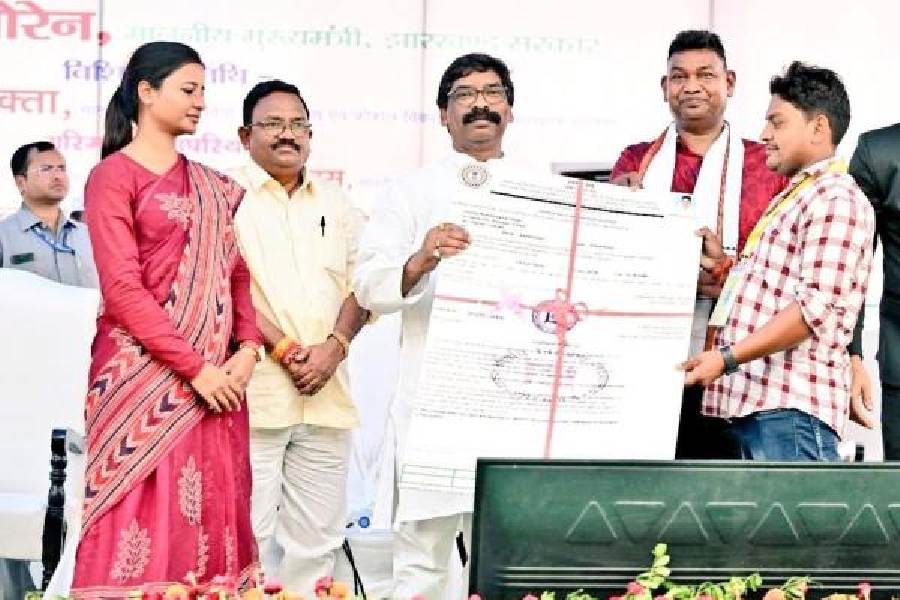Jharkhand chief minister Hemant Soren on Monday handed over licences to beneficiaries of an ambitious scheme of opening medicine shops in villages.
The beneficiaries were given licences at a function held in Chatra district which is among the backward districts of the state.
“Chatra is the first district where the beneficiaries of the government's village-level medicine shop scheme are getting the licences and soon other districts will also start distributing licences among beneficiaries. Now such generic medicine shops will be opened at the panchayat level. But we have plans to open such shops across all the revenue villages,” said Soren who inaugurated 219 schemes at Chatra on Monday.
“Essential generic medicines will be available at such medicine shops and will prove to be a boon for those villagers staying in remote villages who earlier had to flock to block headquarters for medicines and had to face problems during odd hours. Now they can get the medicines near their villages even at odd hours,” said Soren.
The chief minister said that even a matriculate or an intermediate can obtain a licence for such shops.
“One needs to be able to read the names of medicines and know which medicines are for which ailment. They will be given a chart by the district drug officials in which names and dosages of generic medicines for common ailments will be mentioned and they need to only give the medicines and in case of any problem, they will refer the patients to the nearest block-level community health centres,” said an official in the chief minister’s secretariat.
The state health department had made the proposal of opening medicine shops in villages in 2021 and it got the formal nod from the chief minister in 2022. Then the advertisement for opening such shops was taken out in newspapers. The scheme aims to set up village medicine stores in each of the over 4,400 gram panchayats across the state.
“It is the first of its kind in the entire country wherein medicine shops would be established in all the panchayats of the state. The shops would also provide telemedicine and tele consultancy services with the support of the state health department's helpline number 104,” confirmed additional chief secretary of the health department, Arun Kumar Singh.
Singh added that this would end the essential drug problem in rural areas.
“They would be provided with a restricted licence to stock and sell essential drugs on the prescription of a registered medical practitioner. They will be in touch with the nearest state-owned health infrastructure in rural areas in order to mitigate the requirement of any essential drugs,” said Singh.
Apart from this, the scheme would also open job opportunities for educated youths in rural areas. They would be getting subsidies and loans through the Chief Minister Employment Guarantee Programme of the state welfare department.
The step assumes significance as the state-run healthcare infrastructure, including primary healthcare centres (PHC), community healthcare centres (CHC) and health sub-centres (HSC), is much less than what is supposed to be according to the Indian Public Health Standards (IPHS).
According to IPHS, a state needs to have one CHC for every 1.2 lakh population, while a PHC is to be established for every 30,000 people. HSCs are also required to be opened for every 5,000 people.
“The compliance gap in Jharkhand is huge. According to state records (in 2021), Jharkhand has 188 sanctioned CHCs, of which 171 are functional. This is only 68 per cent of the total number required according to the population ratio. While Jharkhand needs a total of 1,096 PHCs to cater to a population of over 3.29 crores, the state has sanctioned a mere 330 PHCs across the state, of which 291 are functional. While Jharkhand has a total of 3,958 HSCs, it requires 6,580 according to IPHS standards,” said a senior health department official preferring anonymity.











